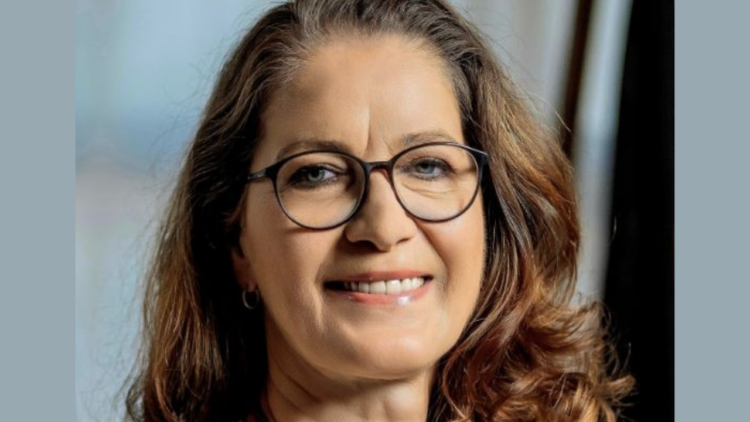In a recent briefing, the German Ambassador to Nigeria, Annett Gunther, revealed a significant increase in trade between Germany and Nigeria. The trade volume reached €3 billion in 2022, a substantial rise from the previous year’s €2 billion.
This impressive growth signifies the strengthening diplomatic and economic ties between the two nations over the past six decades. Germany’s role as Nigeria’s second-largest trading partner in Sub-Saharan Africa highlights its importance as a political, economic, and cultural ally.
The trade relationship between Germany and Nigeria is multifaceted, with both countries benefiting from diverse exports and imports. Germany primarily exports machines (28 percent), food products (20 percent), and chemical products (19 percent) to Nigeria. On the other hand, Nigeria’s main exports to Germany consist of crude oil (83 percent), food products (12 percent), and other raw materials (4 percent).
This bilateral trade arrangement not only fosters economic growth but also promotes cooperation in various industries.
Germany’s presence in Nigeria extends beyond trade, with 90 German companies operating in the country. These companies collectively employ approximately 1,700 Nigerians directly and contribute to indirect employment opportunities on a much larger scale. Companies such as Bayer, Bosch, DHL, Henkel, Knauf, and Siemens Energy have played pivotal roles in the Nigerian job market.
Additionally, the German company Beiersdorf operates a large factory in Lagos, providing employment to around 1,000 Nigerians. This illustrates the depth of Germany’s commitment to economic development in Nigeria.
In the fields of energy and climate, Germany and Nigeria have established a bilateral partnership to enhance renewable energy production and improve energy efficiency.
This collaboration dates back to 2008 and has expanded to include the Federal Government’s National Hydrogen Strategy, leading to the establishment of a German-Nigerian Hydrogen Office in Abuja. This office aims to bolster Nigeria’s hydrogen sector, thereby increasing its export capabilities.
Furthermore, the Presidential Power Initiative, which utilizes Siemens technology, seeks to enhance Nigeria’s electricity grid, laying the foundation for improved economic growth. The interest of German companies in supporting Nigeria’s Energy Transition Plan with high-tech investments in climate-friendly technology signifies their commitment to sustainable development.
Germany’s cooperation with Nigeria encompasses three pillars: Development, Stabilization, and Humanitarian efforts, as well as support for Democracy, Rule of Law, and Human Rights. In terms of development, Germany has invested €600 million in ongoing projects, making it the second-largest donor. An additional €620 million has been pledged for projects with the Economic Community of West African States (ECOWAS).
These projects focus on economic development, modernization, climate protection, energy transition, education, skills development for youths, agricultural efficiency, peacebuilding, conflict prevention, and health and social protection.
Notably, a cashew nut project in Lagos aims to train Nigerians in cashew fruit production and certification for export, showcasing Germany’s commitment to capacity building.
In the realm of stabilization, Germany has contributed €96 million to the United Nations Development Programme (UNDP) Regional Stabilization Facility (RSF) for conflict-affected areas in the Lake Chad Region.
This funding has led to the reconstruction of villages such as Ngarannam in Borno State, which were previously devastated by Boko Haram attacks.
The efforts have resulted in the establishment of essential infrastructure, including schools, police posts, trenches, and watchtowers. Moreover, returning residents received support in the form of cash stipends, food, and livestock to aid in rebuilding their lives. Germany’s commitment to the Borno Model for managing mass exits from Boko Haram aligns with the EU’s €20 million project, contributing to the fight against banditry and the improvement of livelihoods in the region.
On the humanitarian front, Germany prioritizes protection, food security, health, and shelter. In 2022, Germany allocated €87 million to support humanitarian efforts in the Lake Chad Basin Region and emerged as the second-largest humanitarian donor in Nigeria, with a total contribution of €53.4 million.
Notably, Germany was the biggest donor to the Nigerian Humanitarian Fund, providing €12 million in 2022. This underscores Germany’s commitment to addressing critical humanitarian needs and aiding vulnerable populations in Nigeria.
Germany’s growing influence in Nigeria, both economically and diplomatically, is evident through the remarkable increase in trade volume, substantial foreign direct investment, and the positive impact of German companies on job creation.
Furthermore, their collaboration in energy and climate initiatives and support for Nigeria’s development and humanitarian efforts showcase a multifaceted partnership that benefits both nations.
As Nigeria continues to evolve as a regional economic powerhouse, its deepening ties with Germany will likely play a pivotal role in shaping the nation’s future economic and social landscape.











